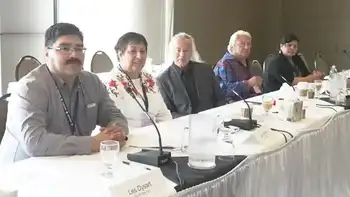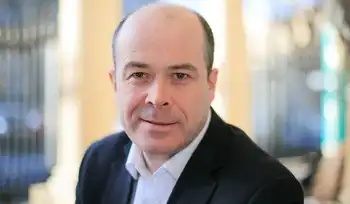Texas defies the EPA, approves plant
AUSTIN, TEXAS - Texas environmental regulators approved a crucial air quality permit that paves the way for construction of a coal-fired power plant in Corpus Christi, defying a request by the U.S. Environmental Protection Agency to deny the permit.
The three-person Texas Commission on Environmental Quality voted 2-0 to approve the permit for the planned Las Brisas Energy Center, with a few minor modifications. Commissioner Carlos Rubinstein abstained from voting due to being briefed on the permit when he previously served as deputy executive director.
The permit's approval marked the latest chapter in a feud between the state commission and the EPA. The EPA has taken over parts of Texas' permitting authority because the state refused to comply with federal demands, and Texas filed several lawsuits challenging EPA rules, insisting they are inefficient, don't benefit the environment and harm industry.
After about 45 minutes of testimony during the public hearing, TCEQ Chairman Bryan Shaw recommended granting the permit application.
"I don't believe the merits of the facts before us would require or warrant the state agency to remand it, based on my understanding of the rules in place," Shaw said.
The EPA asked the Texas commission to deny the permit application so that the two agencies could work together to resolve various issues. The federal agency wrote in the letter dated January 24 that it was concerned about a lack of consultation with them and that the plant could violate federal clean air standards.
The EPA wrote that it has "strong concerns about the public health and environmental impacts" the plant would pose.
Shaw said the EPA's letter could not be considered because it was not part of the official record of the proceeding so it had no impact on their decision.
A Texas administrative law panel has twice recommended that state regulators deny the permit. The vote was immediately denounced by several environmental groups, including those who spoke against the permit at the hearing.
"This is just another example of why Gov. Rick Perry's appointed commissioners are nothing but a rubber stamp for industry," said Jennifer Powis, the Sierra Club's senior regional representative.
"It's really Gov. Perry standing in the way of federal law. That's a problem on multiple levels. You can't have a state cherry pick which law they want to apply," Powis said.
Texas is home to 19 coal-fired power plants, more than any other state.
The $3 billion Las Brisas project that will "provide much-needed low-cost, reliable electric power for users throughout Corpus Christi and South Texas at competitive prices," according to the company's website, which also touts economic and job benefits. "It will be a state-of-the-art facility utilizing highly sophisticated equipment to generate clean energy and protect the region's environment."
But some residents questioned the company's positive view, expressing concern that the plant would emit high levels of toxic substances like mercury.
"Texans will not stand by while the agency that is supposed to protect our health and environment does the opposite and would allow industrial polluters to rain air toxins on the population," Gerald Sansing, a microbiologist with the Clean Economy Coalition of Corpus Christi, wrote in a statement. "This plant must not be built and we are looking to the EPA to take the next step to enforce the law."
Opponents can appeal the decision to the TCEQ and also file a lawsuit in district court.
Although the permit is important for clearing the way to building the plant, other permits are still needed, including a water discharge permit from the state and possibly a greenhouse gas permit from EPA.
Related News

Tesla plans to reveal electric transport truck in October
LONDON - Tesla is likely to unveil its electric articulated transport truck in October, chief executive Elon Musk said on Thursday.
The firm had previously said the vehicle would be released next month.
Last year Mr Musk expressed the company's desire to branch out beyond cars.
The entrepreneur has excited the trucking industry with the prospect of a battery-powered, heavy duty vehicle that can compete with conventional diesels.
Mr Musk said an "unveil and test ride" for the Tesla Semi truck was tentatively scheduled for 26 October in Hawthorne, California.
"Worth seeing this beast in person. It's unreal," he said in a tweet.
The US firm's ambitions for…




